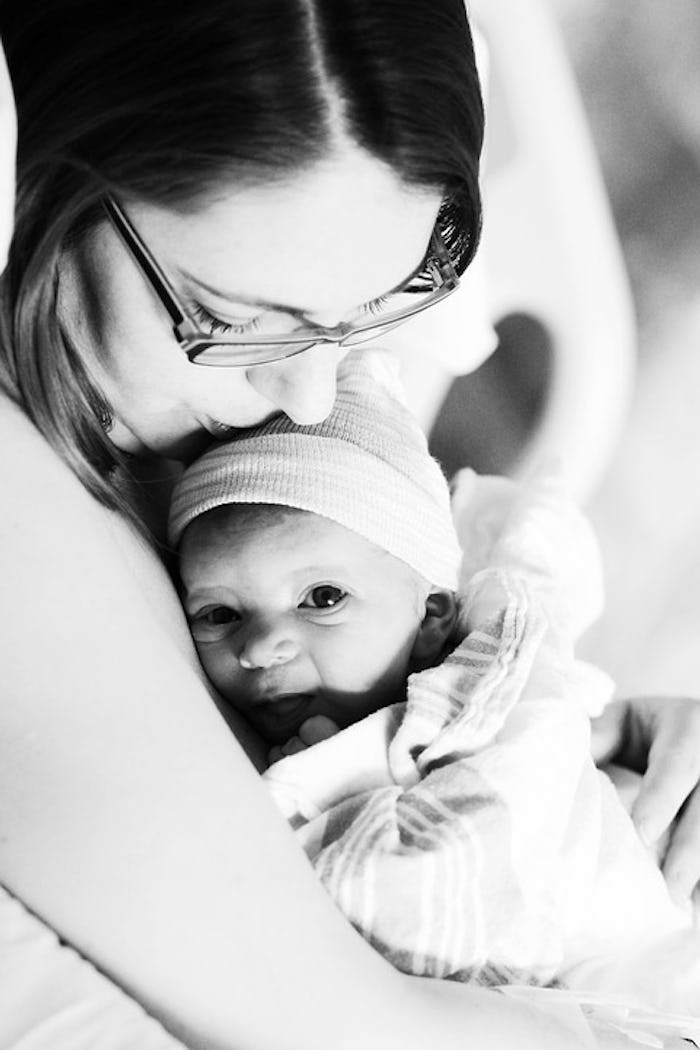Most women spend the majority of their pregnancy preparing for labor (as they should). Once they give birth and arrive home, however, they realize they are less prepared for their recovery period than they should be. Although each pregnancy, labor, and postpartum experience is different from woman to woman, there are a few precautions to take in the first month postpartum that are guaranteed to make your recovery much easier.
Whether you have yet to give birth or you just brought home your newest addition, knowing these tips can save you unnecessary discomfort, stress, and even medical issues in a time that should be spent getting to know your baby and adjusting to your new role as mom.
Most of these tips are fairly intuitive, but for the first time mom who has never given birth, taking a few precautions in the early postpartum period will ensure that you're as comfortable as possible, that your body heals well, and that you're able to enjoy your new baby without focusing too much on outside issues. As difficult as the postpartum period can be, it's also a beautiful time that won't last forever. Prepare first so that you can enjoy later.
1Take A Stool Softener To Prepare For The First Postpartum Poo
The first postpartum poop can be especially difficult whether you had a vaginal birth or a C-section. Luckily, your doctor will most likely give you stool softeners to make the process more bearable. Take them early on, before you feel the urge to use the restroom, so that your system can adjust accordingly. According to the Bump, stool softeners are safe (and recommended) even if you're breastfeeding, so don't hesitate to jump on the bandwagon as soon after birth as possible.
2Get Enough Rest
Mom Junction noted that simply getting enough rest can save your energy, health, and sanity in the postpartum months. Rest when your baby rests, or enlist the help of your partner, parent, or a friend to watch your little one while you get some much deserved shut eye.
3Keep An Eye On Your Bleeding
Whether you gave birth without medication, had an epidural, or had a C-section, there will be blood for weeks after you deliver. According to What to Expect, bleeding heavily for the first few days is totally normal. It will gradually lessen and disappear by about four to six weeks. If, however, your bleeding continues or is accompanied by a fever, you should see your OB-GYN immediately, as this could be a sign of infection or other issue.
4Nurse Frequently To Prevent Engorgement
Although your milk should balance itself out within the first month or so, it can be painful to have engorged breasts and an unbalanced milk supply. Baby Med suggested nursing as often as possible in the first month to encourage a healthy milk supply and relieve the discomfort you may experience from engorgement.
5Keep Your Calendar Clear
Although it has less to do with your physical recovery, many moms aren't aware of just how exhausted they'll be after giving birth. If might be best to hold off on scheduling visits or outings until you and your baby are more accustomed to postpartum life, according to the aforementioned Mom Junction piece.
6Enlist Help Ahead Of Time
According to Postpartum Progress, postpartum depression is common among new moms. One way to prevent unnecessary stress is to enlist help sooner rather than later. Ask for help with cooking, cleaning, or even with diaper changes. You'll need all of the downtime you can get and preparing in advance is better than wishing you had more help when the time comes.
